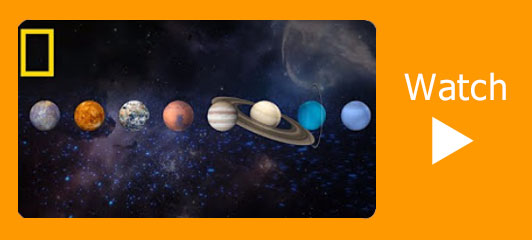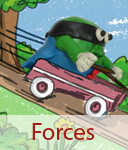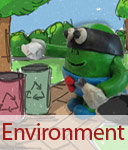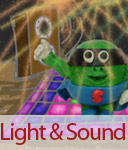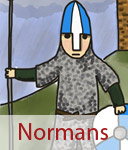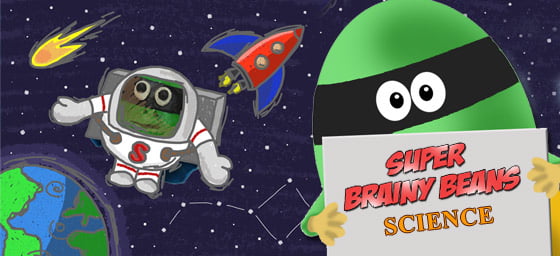
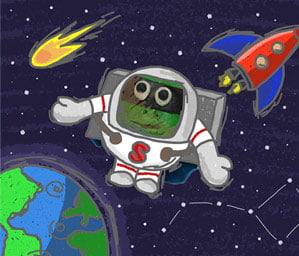
Earth and Space
Year 5 & 6
Earth and Space for kids in Year 5 & 6 explained. Learning in Key Stage 2 Science. Learn our solar system, galaxy and astronomy.
Pick a level
The solar system
The solar system is made up of the Sun, eight planets, their moons, and smaller objects such as asteroids and comets. The Sun sits at the centre of the solar system and is much larger than any of the planets.
The Sun is a star that gives off huge amounts of light and heat energy. This energy is vital for life on Earth, as it warms our planet and provides the light plants need to grow.
All the planets are held in the solar system by a force called gravity. Gravity is a pulling force that keeps planets moving around the Sun instead of flying off into space.
 Space Place
Space PlaceNASA’s Space Place website teaches space and Earth science through interactive games, hands-on activities, fun articles and short videos. Numerous resources for kids, parents and teachers, Space Place has something for everyone.
Planet orbits and movement
Planets travel around the Sun in orbits. An orbit is a curved path that a planet follows as it moves through space. Each planet has its own orbit and does not crash into other planets because these paths are well spaced.
Each planet:
- takes a different amount of time to complete one orbit around the Sun
- moves at a different speed
- is kept in its orbit by the gravitational pull of the Sun
The time it takes a planet to travel once around the Sun is called a year. For Earth, this takes 365 days. Other planets have much longer or shorter years depending on how far they are from the Sun.
Earth’s movement helps explain important events.
- Years are caused by Earth orbiting the Sun
- Seasons happen because Earth is tilted as it orbits the Sun, changing how much sunlight different parts of the planet receive during the year
Understanding orbits and gravity helps scientists explain how the solar system stays balanced and why planets move in such predictable ways.
 Planet families
Planet familiesTry to build the perfect solar system. See how different planets react with one another and how some planets are important in keeping the solar system stable.
 Relay laser communications
Relay laser communicationsIn this game you will send information, or data, back to Earth using lasers. You will use mirrors to move the laser and avoid obstacles to get the data back to Earth.
 Planets for Kids
Planets for KidsLots of information about our solar system with lots of questions and answers and games for you to play.
The Earth’s Rotation
Earth is always spinning, even though we cannot feel it. This spinning movement is called rotation. Earth spins around an invisible line called its axis, which runs from the North Pole to the South Pole.
It takes Earth 24 hours (one full day) to complete one full rotation. This steady movement happens all the time and is an important part of how our planet works.
Earth’s rotation is responsible for our daytime and night-time.
Day and night
Day and night happen because Earth is rotating, not because the Sun is moving around us. The Sun stays in the same place in space while Earth turns.
As Earth rotates:
- the side facing the Sun has daytime, with light and warmth
- the side facing away from the Sun has night-time, when it is dark
As Earth continues to spin, places move from daylight into darkness and then back into daylight again. This cycle repeats every 24 hours, creating the regular pattern of day and night that we experience every day.
The Sun appears to move across the sky, but it is actually Earth that is moving. This is called apparent movement. It looks real, but it happens because Earth is rotating.
Gravity and space
Gravity is a force that pulls objects towards each other. Every object with mass has gravity, but very large objects, like planets and stars, have much stronger gravity.
Gravity plays an important role in space and on Earth:
- Gravity keeps us on Earth by pulling everything towards the ground, which is why we do not float away.
- Gravity keeps planets in orbit by pulling them towards the Sun while they move around it.
- The Moon’s gravity causes tides on Earth by pulling on the water in the oceans, making sea levels rise and fall.
Gravity does not disappear in space, but it can be weaker the further you are from a large object like Earth. Astronauts in space appear to float because they are far from Earth and are moving with their spacecraft, not because there is no gravity at all.
The Moon also has its own gravity. Although it is much weaker than Earth’s gravity, it is still strong enough to pull on the oceans and cause tides. As the Moon moves around Earth, its gravity changes how high the tides are in different places. This shows that even smaller objects in space can have an important gravitational effect.
The size and distance of space
Objects in space are very different in size and distance, and these differences are much bigger than anything we experience on Earth.
The Sun is enormous compared to the planets. It is a huge star made of hot gases and is so large that over one million Earths could fit inside it. Even though the Sun looks small in the sky, this is only because it is very far away from Earth.
Earth is much smaller than the Sun, but it is still much larger than the Moon. The Moon is about one-quarter the size of Earth. This means that if Earth were the size of a football, the Moon would be about the size of a tennis ball.
Distances in space are also extremely large. The Moon may look close in the sky, but it is actually about 384,000 kilometres away from Earth. Spacecraft take several days to travel there. The Sun is even farther away — about 150 million kilometres from Earth.
Because space distances are so huge, scientists often use models and scale drawings to help compare sizes and distances. These models make it easier to understand how far apart objects are and how they move in space.
What can you see in space from Earth?
There are many amazing things you can see in space without using a telescope. All you need is a clear night, no clouds blocking the view, and a warm coat if it is cold. When you look up at the night sky, you may be surprised by how much you can spot with just your eyes.
Stars and planets
Astronomy is the study of space, including planets, stars and galaxies. Scientists who study space are called astronomers.
On a clear night, you can see stars shining in the sky. Some stars form patterns called constellations, which people have used for thousands of years to tell stories and help with navigation.
You can also see some planets. Planets often look like very bright stars, but they do not twinkle in the same way. Did you know the stars do not only appear at night? They are still there during the day, but the Sun’s light is too bright for us to see them.
 Online Planetarium
Online PlanetariumFind out what you can see in the the sky tonight. Which planets and constellations are visible with star charts in your area.
Satellites
A satellite is anything that orbits (travels around) a larger object. The Moon is a natural satellite because it orbits Earth.
There are also artificial satellites, which are made by humans and sent into space for a purpose, such as communication, weather forecasting and navigation.
In 2019, groups of Starlink satellites were launched into orbit to help improve internet connections around the world. When newly launched, these satellites can sometimes be seen moving across the sky in a line, close together. Over time, they spread out but can still be spotted as they travel across the night sky.

See where the Starlink satellites are over earth and when they will be flying over your part of the world.
The International Space Station (ISS)
The International Space Station (ISS) is a large spacecraft that orbits Earth like a satellite. It is a science laboratory in space, where astronauts live and carry out experiments in microgravity (very low gravity).
The ISS orbits Earth once every 90 minutes, which means it passes over many places on Earth each day. When it is visible, it looks like a very bright star moving quickly across the sky. Unlike an aeroplane, it does not flash or change direction, and it moves much faster.
The ISS does not pass over the same place every night, so people often check online trackers to find out when it will next be visible from where they live.
The ISS orbits the Earth once every 90 minutes (1 and a half hours). So there are many chances to see the ISS fly past where you live. The space station looks like an aeroplane or a very bright star moving across the sky, except it doesn't have flashing lights or change direction. It will also be moving considerably faster than a typical aeroplane. The space station doesn't fly over where you live every night, so you need to find out when it's next flying over from the website below.

Enter your location and find out when the International Space Station is going over.
 Space Station LIVE stream
Space Station LIVE streamWatch real-time video from the International Space Station (ISS) as it travels around our planet every 90 minutes. See sunrises, city lights, auroras, and the beauty of Earth from 400 km above.
 What is the International Space Station?
What is the International Space Station?NASA explains what ISS is and why it was built.
 Snap it space game
Snap it space gameThe traveller needs your help! They have come to Earth to study an event we call a total solar eclipse. Can you help the traveller snap photos of an eclipse?
 Space
SpaceDiscover facts and information on the Solar System, Deep Space and Space exploration.
Life on other planets and aliens
Scientists are very curious about whether life exists anywhere else in the universe. Right now, Earth is the only planet we know that has living things, but the universe is enormous—there are billions of stars and planets!
Could life exist elsewhere?
Some planets and moons have conditions that might allow life, such as water, heat, or an atmosphere. Scientists study Mars because it once had rivers and lakes. Some moons, like Europa (orbiting Jupiter), might have oceans beneath their icy surfaces.
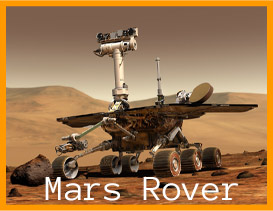
Aliens in stories and science
When people talk about aliens, they often imagine strange creatures from other planets. Most of these come from books, films, and TV shows. Scientists don’t know for sure if intelligent aliens exist—but they keep looking by studying planets, moons, and even sending signals into space.
How scientists search for life
They use telescopes to study planets and stars far away. Space missions, like rovers on Mars, look for signs of water and other chemicals that could support life. They also listen for signals from other civilisations using special equipment called radio telescopes.

